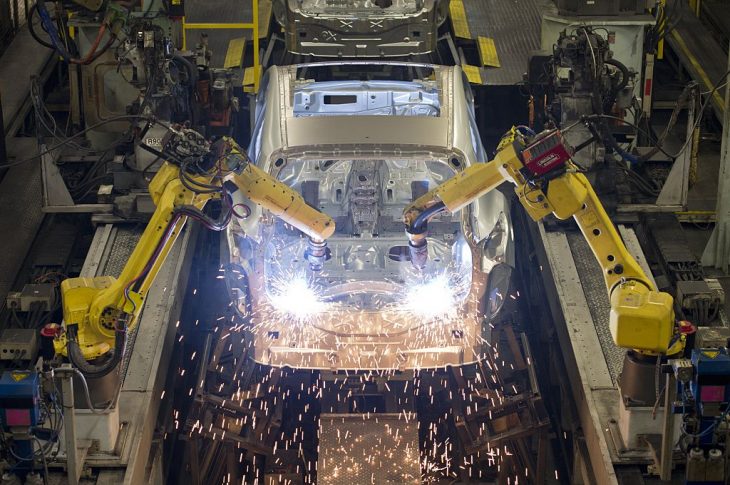As I’ve said before, the bellwether of post-Brexit prosperity will be the health of the UK car industry, rather than that of the far larger financial sector. The City is nimble enough to look after itself come what may; it requires little more than plug sockets and clever lawyers to outmanoeuvre barriers to its trade. Car-makers, by contrast, require massive investment in research, robotics and logistics to keep them at the cutting edge of a globalised manufacturing system operating on the tightest of margins.
So every indicator is worth tracking. Peugeot-Vauxhall was a mixed signal, and a cloud hangs over the Ford engine plant at Bridgend. But there’s positive news from Toyota in Derbyshire, which is investing £240 million in an assembly line upgrade to match Toyota systems worldwide. Toyota’s European chief, Johan van Zyl, says he’s hoping for the same ‘safeguards’ against EU tariffs that Theresa May is believed to have promised Nissan; he also talked of sourcing more components within the UK.
If the first of those two provisos remains uncertain, the second is an opportunity. On average, only 41 per cent of parts in British-made cars originate here. Whatever the Brexit deal, it’s highly unlikely to offer carry-on-as-you-are exemptions for this industry alone. So the challenge in the automotive game will be to generate competitive new lines of supply, whether domestically or from faraway places we can trade with tariff-free. Let’s open a factory.
This is an extract from Martin Vander Weyer’s Any Other Business, which appears in this week’s Spectator







Comments